Neither do men light a candle and put it
under a bush, but on a candle stick, and
giveith light until all …"
- Message of Jesus Christ
Success in all undertakings is attained as a result of effort; effort put forth in the firm conviction that sincere and earnest human endeavor never goes unfulfilled. Success is not achieved by never encountering failure. Failure is often a part of success. Failure is not final. Success is final. Failure is merely incidental. In our effort to attain perfection, failure may assail us many times. This doesn’t matter. Failure is not a sin. It is giving up effort that sinful. Failing is not a great fault. But wanting to sit down where one has fallen, refusing to rise up and struggle on, that, indeed is a bad fault. Ultimately, success is built over failure, won by persevering effort.
There are many examples of this great quality of perseverance. You remember in what thrilling words Lord Buddha expressed his determination to attain enlightenment. After going to so many gurus, following so many paths, practicing so many austerities, becoming emaciated finally and losing his health, he decided to give up extreme austerities and physical tortures, self-inflicted, in the name (the false name) of penance. "Extremes," he realized are not good. Penance is necessary, a certain degree of austerity, and mortification is necessary, but extremes are not in accordance with the law." So saying, he took a little nourishment and sat down under the Bodhi Tree. "Now, no matter what happens," he resolved, "come what may, I am determined to attain enlightenment. If this body has to shrivel up, if the skin has to wither and fall away, if the very bones of my body have to dry up and crumble away, yet Siddhartha will not leave this seat, until and unless illumination is attained. Let the body dry up, let the flesh wither and fall away, let the bones crumble and collapse. Until enlightenment comes, Siddhartha will not budge." Then what a great inner struggle, what a storm and a hurricane he had to pass through! But Siddhartha did not move.
Such should be one’s determination. Such should be one’s dedication to the life of lofty virtue, the path of light, the great goal of self-realization. Whatever one is engaged in, whatever type of life one is leading, inwardly one should be ever rising upward, Godward, divine-ward, up, up to this great attainment. If there is this determination and dedication, there is such ceaseless striving and effort, ultimately realization must come.
The grandeur of life is in dedicating it to a noble cause. If you do not win, it does not matter. It is a small mind that is always thinking of winning. Let the mind think greatly, grandly. Life should be lived nobly, based upon lofty sublime principles, with a wide vision.
In the Upanishads, there is a naïve, but wonderful little story about a pair of birds who built a nest on the sea-shore, close to the waves. The birds were sand-pipers. They had three beautiful little eggs laid in their nest that where beginning to hatch, when, one day, while they were away getting soft things to line the nest, there came an extra big wave, rolling in from the sea, right up to the place where they had hidden the nest among the dunes. In one lap, it swallowed the nest and swept it out to sea: eggs, nest and all. The birds came back and could not find the nest. The reeds and the ruses were all wet, all white, all covered with foam. And the sea murmured.
The birds flew up to the water’s edge, and demanded of the sea that their nest be restored to them. The sea continued to murmur and the waves to break. But there was no answer. Then the birds decided, "The sea has no business to take what does not belong to it. The sea shall give up what is not its own. We shall empty the sea. We shall regain our own." Then the father bird flew back to a clump of grass, and plucked one tiny blade, few out to sea, scooped up a few drops of water, flew back to the sands, shook the drops of water to the shore, and returned to the sea. This process, back and forth, flying out to sea, dipping and scooping, flying back to land, shaking water on the shore, again, and again he repeated. Then, exhausted with hunger, he gave the blade of grass to the mother bird and foraged for food while she continued the process. The birds didn’t look at the sea. They didn’t try to calculate its depth or its magnitude. They concentrated fully upon the task at hand.
Days passed. They poured themselves into their work. Then a great sage who was wandering past, saw the two little birds shuttling back and forth between shore and wave, and paused to watch them, puzzled. Then he addressed them, "Little ones, what your engaged in?" And the father bird replied, "Oh sage, I seek to empty the ocean." The sage’s eyes widened. The little bird narrated the story of the wave, and the capture of his nest and eggs. He spoke of his determination to regain them. So saying, he sought the sage’s blessings and flew out to sea. The sage was astounded at the greatness of the spirit of this little bird. And he addressed it (for he was a man of great realization, established in cosmic consciousness and at one with nature). He demanded that the ocean restore that which the wave had taken. And the ocean brought back the nest and the eggs, and laid them at the sage’s feet. And the birds were satisfied.
The master who narrated this incident to the disciples said, "Such should be your determination, my child, such indeed should be your spirit, if you would plumb the depths of the ocean of Satchidananda." So remember the perseverance of Lord Buddha. Perseverance is abhyasa. Abhyasa is persistent effort.
In Patanjali’s Raja Yoga, there is a sutra which says, "If you want to be established in perfect concentration, you must apply yourself persistently, not allowing yourself even a single break." Only by practicing ceaselessly with keen, unflagging interest over a protracted period of time will you ever become established in deep concentration.
Lord Krishna also said to Arjuna that perseverance would be absolutely necessary for him to bring the mind under control. He first told Arjuna to fix it, how to make it sharp and one-pointed in order to still the thoughts. And Arjuna listened carefully. "This is all very well for you to say, Krishna. But for me it seems impossible. You tell me to still the thoughts. But stilling the thoughts is very difficult. Tell me to capture the wind, and put it into a net bag. That may be possible. But to capture the mind, and completely stop its movements is utterly impossible." Lord Krishna said, "I agree with you, Arjuna, that it is very difficult to control the mind. Difficult indeed. But not impossible. It is possible. How? By constant effort. By persevering in your struggle to control it. The mind is constantly restless. It is blazing with fire. Why? Because it is filled with desires. Do not add fuel to the fire. Remove the fuel. Then the fire will die down by itself. You must control the senses, develop dispassion, resolutely turn away from sensual pursuits. If you persevere in this effort, then the mind will become under your control."
In all your endeavors, cheerfulness is of great importance. You should be in a positive frame of mind. You should be contented, serene and calm, never depressed, never dejected. If, in following the path of virtue you are easily dejected and depressed, then you are anticipating failure, "asking for it" as it were. You must enjoy what you are doing. If you don’t enjoy your ideal endeavor, then don’t do it; you are not yet ready for it. Engage yourself in something else, something good. Plunge yourself into social work, or volunteer philanthropic work, or selfless service of some sort. But let yoga wait. You will not succeed in it. By the mind, you must be able to raise up the mind. You must be able to make it transcend all desires. The practice of virtue should fill you with joy, self-control should bring you happiness, spiritual effort should fill you with cheerfulness and contentment. If you are leading the spiritual life, doing sadhana, practicing yoga, trying to attain God-consciousness, while at the same time you are moody, irritable and unhappy, then success will not be felt. Spiritual bliss and mental depression don’t mix.
Deep inner sorrow you may have. On the path of bhakti, for instance, the devotee experiences sorrow, this pain is something so secret and so deep, that it does not appear outwardly. In his daily activities the devotee is radiant; he is calm and balanced. This spiritual pain, this deep inner sorrow is of the soul. It is concealed within. It is a languishing of the spirit. It is never known to any save himself and his God. The divine principle is always at work in him and the true devotee is always radiating peace calm.
Dedicate yourself to the path of purity. With determination follow the path of virtue and the path of good character, and the path of good conduct. Resolve firmly to remember God, to pray, to study, to contemplate, to serve. Build up inwardly a mighty and dynamic wave, a strong and steady movement towards the Supreme Being. Let every day be filled with selfless activity, dedicated to a noble cause and a grand ideal.
Now I would like to touch briefly on the definition of the term yoga. There are two general ways in which yoga is defined. One is popular and strictly classical. In Patanjali’s Raja Yoga, first of all, the term designates one of the six great theoretical systems in Indian philosophy. Among these systems or shad-darshanas, one is yoga. According to the specific and the classical definition then, yoga means yoga-darshana.
According to the popular use of the term, however, yoga means, in this century, any of the exercises comprising the practices of Hatha yoga, Raja yoga, or Karma yoga. It means asanas or exercises, nauli, bhastika, and mudras. All these are comprehended in the popular term Yoga.
But the most significant meaning we have yet to define. What is that? It is Yoga in its essential import. Any process, any spiritual technique, any exercise that one engages in or employs in order to attain union with God is really Yoga. Whatever leads one towards the supreme goal is rightly referred to as Yoga.
Is there no other way to attain God-Realization? Is Yoga the only way? To answer this question, we must now specify what real yoga is not. Real Yoga is not Raja Yoga exclusively, nor Hatha Yoga exclusively. Nor is it yoga-darshana. Real Yoga is not confined to any one religious dogma, or to any one spiritual exercise or ethical practice or moral discipline, however thoroughly that discipline may be applied. Whatever may be your religion, whatever may be your spiritual discipline or practice, if it be done for the attainment of God-realization, then it is real Yoga. And Yoga in this sense, is the "only way."
So all those people who have been trying to attain God-realization through prayer, for instance, no matter what their religion may have been, have been practicing Yoga. They may have practicing Hatha Yoga, or Raja Yoga, or Karma, but they have been meditating. And meditation is the culmination of all Yogic practices.
Any one who strives to attain divine consciousness ultimately is drawn into the state of calm silent inward meditation. In this calm silent inward meditative state alone is God-vision ultimately obtained and illumination achieved. Meditation is the common universal process which all souls have to pass on their ascent into divinity. In order to transcend the individual consciousness, in order to attain the infinite divine consciousness, Sufis, Christians, Jews, Hindus, Buddhists, aboriginal mystics, American Indians, sooner or later, all enter the meditative state.
These ideas should be clear to you. You should be able to understand the precise meaning of the word Yoga. Then whenever you hear the word used, you will be able to help eliminate confusion and misunderstanding.
Now one final word. Why did God create this universe? Is there a theory to explain why he did it? There is not. There are various schools in India which have formulated distinctive philosophies, but none of these philosophies is accepted universally as conclusive or finally valid. The purpose of creation is a transcendental question. It cannot be answered through rationalization. For the answer refers to a time when the intellect is not created. It refers to a realm, a consciousness where the intellect is not at all apparent. Before creation, nothing is projected. This human isn’t there. So how could it comprehend the mystery of a state in which it doesn’t even exist? The exact mystery, the truth of that condition preceding creation cannot be reached through the process of intellectualization. But if you can raise up your consciousness to that eternal realm which exists before the intellect is, then the answer immediately becomes crystal clear to you. In that transcendental experience, it can be clearly understood.
And who created God? This is another transcendental question. If you want to have the answer to this question too, then attain God-consciousness. Because in God there is no doubt. In the human mind these question do arise. But if you attain to a state of God-Consciousness, then you will have no doubt. All questions will simply subside because all the answers are there in that transcendental awareness of all.
Now let me close, urging you to push on, to walk along the shining path of good conduct and good character, to move towards the Divine. Do this with great Cheerfulness. Be happy. Have hope. Never give up, never despair. Keep on until you attain the glorious goal and become blessed.!

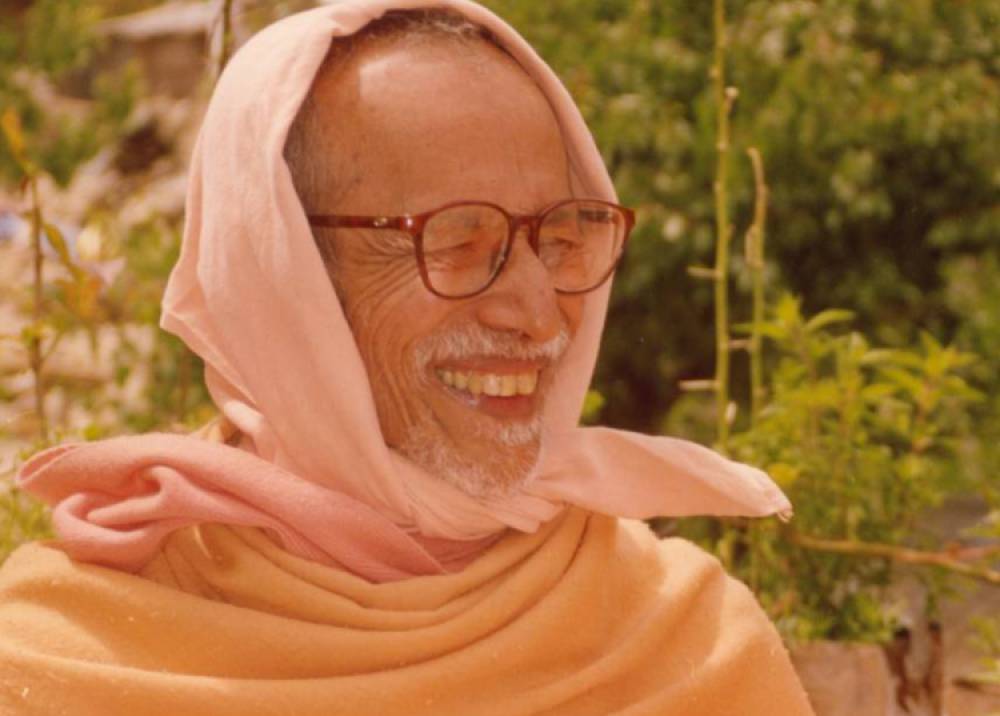
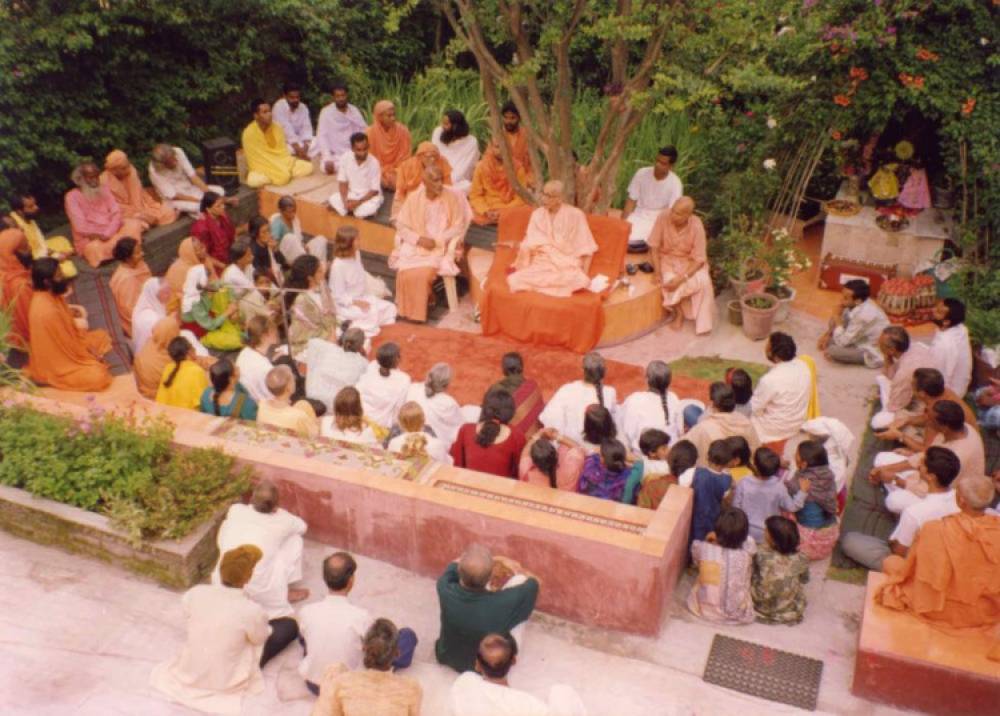

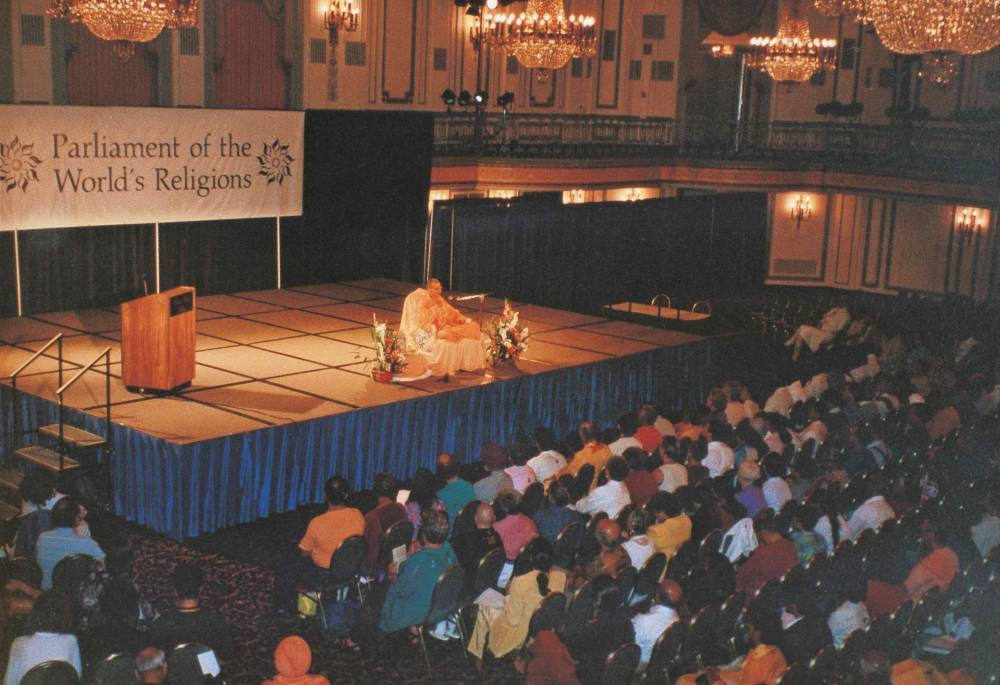
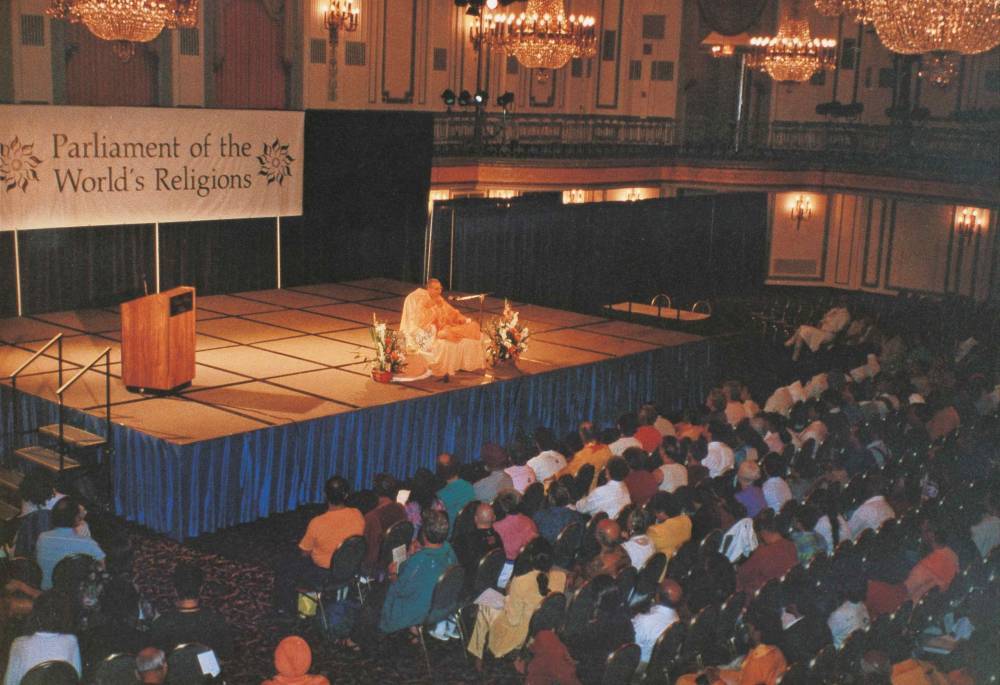
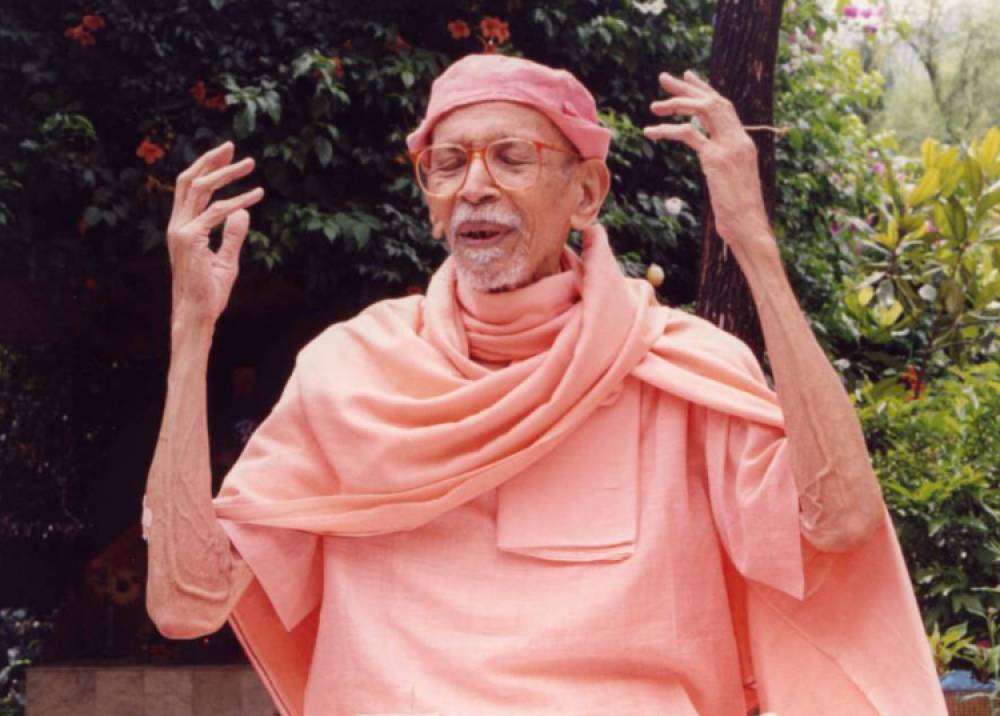

No Comments found. Be first to comment